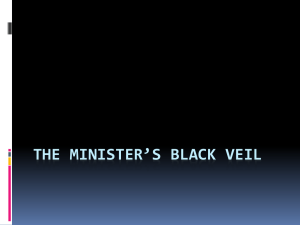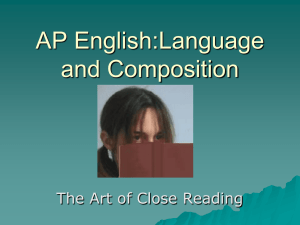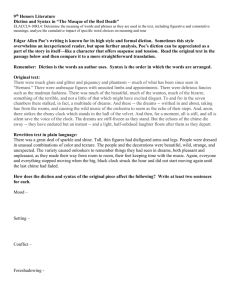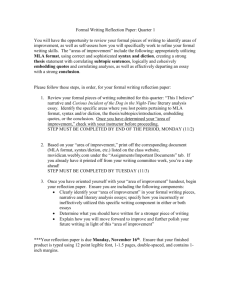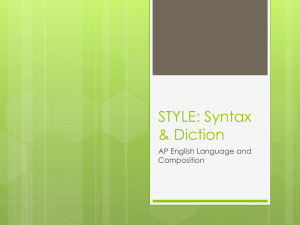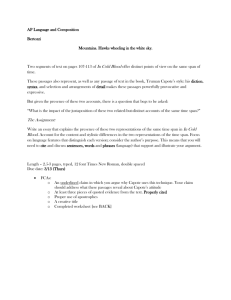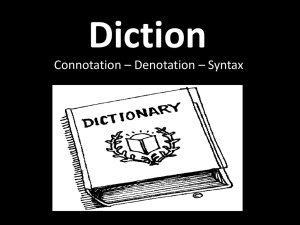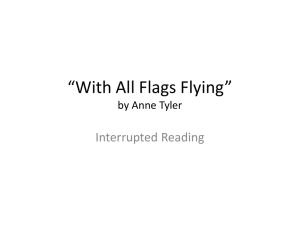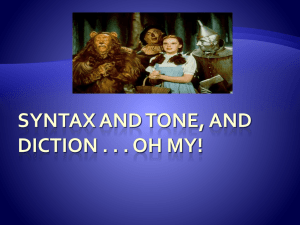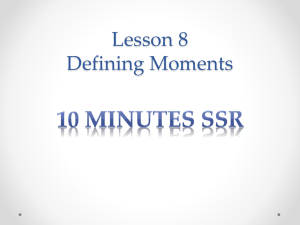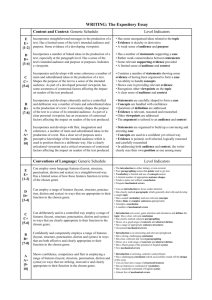Diction - Sanderson High School
advertisement
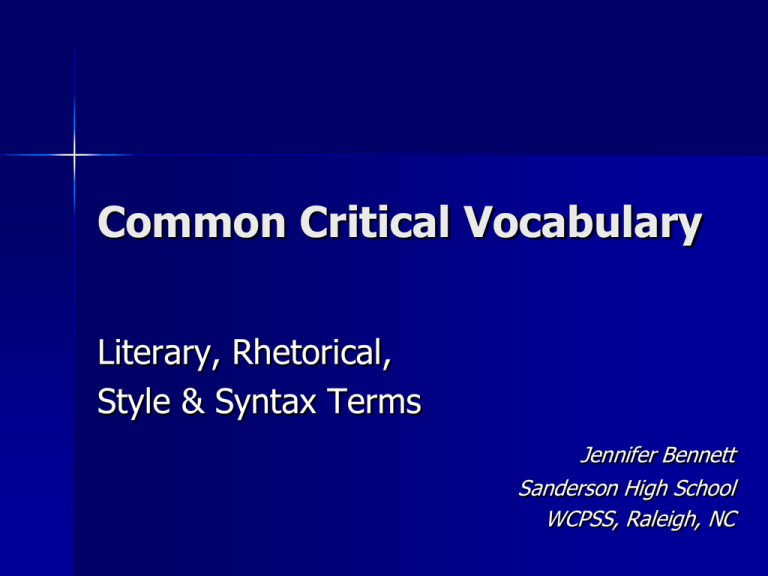
Common Critical Vocabulary Literary, Rhetorical, Style & Syntax Terms Jennifer Bennett Sanderson High School WCPSS, Raleigh, NC Diction Word choice – Most obvious indicator of tone (attitude) Choose words carefully, considering – Purpose – Audience – Occasion Denotation the literal meaning of a word a word’s dictionary definition ex: Nazi – A member of the German Socialist political party during the 1930’s and 1940’s. Connotation The ideas, attitudes, and feelings surrounding a word A word’s “emotional baggage” – Note: the word baggage itself connotes something heavy and cumbersome; a burden— mostly negative connotations Ex. Nazi – Brutality, genocide, ash and smoke from the ovens, piles of picked-through luggage, cattle cars; gas chambers; emaciated prisoners Practice! For each of the following pairs of words, determine their relationship, both denotative and connotative: – Skinny/slender – Swing/lurch – Plump/obese – Meat/flesh – Father/Daddy Levels of Diction Ceremonial Formal Informal Slang Consider vocabulary, usage, and syntax in determining level of diction Syntax Word order—the purposeful way in which a writer arranges words and sentences Sentence structures, types, orders, kinds Ceremonial Level of Diction Some archaic vocabulary—highly formal Syntax—often uses highly complex sentence structures Purpose—to create a particular atmosphere that impresses upon others the import of the occasion Occasion—highly formal; weddings, funerals, inaugurations, graduations Formal Level of Diction Vocabulary: words labeled “form.” in a dictionary; vocabulary is large & mature—words are specific—speak to the nuances of meanings Syntax: often more complex sentence structures—lengths and types of sentences chosen for their specific effects on the audience and the work as a whole Occasions: scholarly essays, papers, research, speeches, letters of a business nature, resumes Audience: those in authority—principals, senators, bosses (respect); those who are welleducated Informal Level of Diction Vocabulary: smaller pool of words from which to choose; mostly words labeled “inf.” in a dictionary Syntax: often less purposeful than formal writing; mostly medium length and simple structures Purpose/occasion: vocab. creates a more familiar, relaxed atmosphere Audience: classroom discussion, informal letters to family (not the notes you write in class!) Slang Level of Diction Vocabulary: quite small; riddled with words labeled “sl.” in a dictionary, considered nonstandard English Syntax: non-standard—fragments, run-ons, non-standard spellings and punctuation; mostly short sentences. Purpose, Occasion, Audience: casual situations, i.e. notes to friends, casual conversations, certain genres of song lyrics, texting & im’ing
